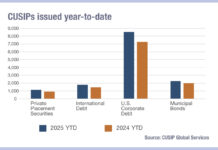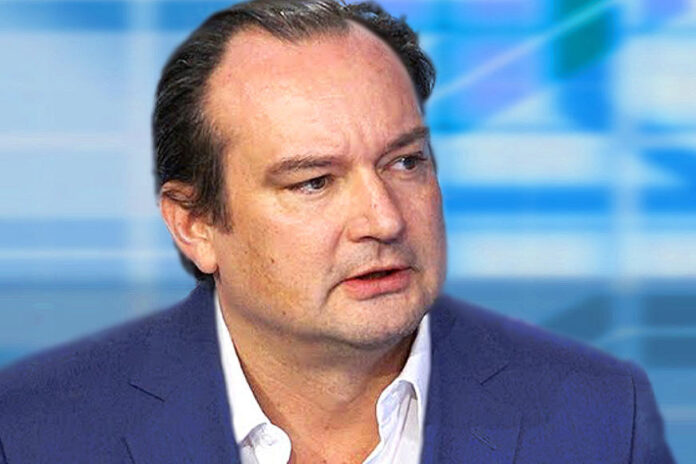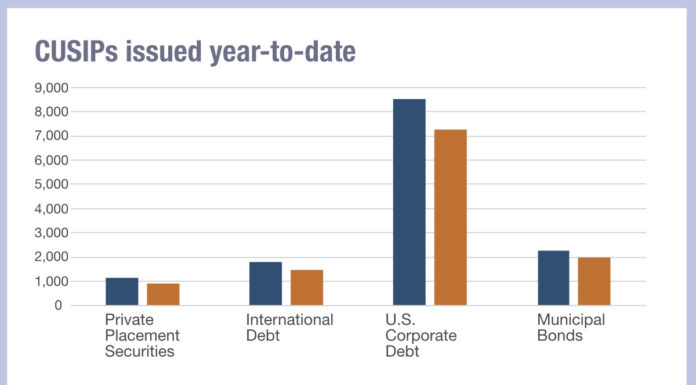Banks have seen mixed results from bond trading in the first quarter of 2023, across credit and rates, while electronic trading platforms have seen net positive results, reflecting a volatile period which was marked by the rescue of Credit Suisse by UBS.
Deutsche Bank reported its fixed income and commodity (FIC) sales & trading revenues were €2.4 billion (US$2.63 billion), down 17% year-on-year compared to what it described as an exceptionally strong prior year quarter. In rates it saw revenues higher against a very strong prior year quarter. Emerging markets (EM) revenues were lower, noted as resulting from the non-recurrence of exceptional client activity in the Central & Eastern Europe, Middle East & Africa (CEEMEA) region in the prior year. Credit trading revenues were lower, reflecting the non-recurrence of a concentrated distressed credit position in the prior year, though this was partly offset by growth in flow credit revenues.
Goldman Sachs’ global banking & markets net revenues were US$8.44 billion for the first quarter of 2023, 16% lower than the first quarter of 2022 and 30% higher than the fourth quarter of 2022. Net revenues in FICC were $3.93 billion, 17% lower than the first quarter of 2022, reflecting significantly lower net revenues in FICC intermediation, driven by significantly lower net revenues in currencies and commodities, partially offset by significantly higher net revenues in interest rate products and higher net revenues in mortgages and credit products. Net revenues in FICC financing were slightly higher.
Morgan Stanley reported its fixed Income net revenues were down 12% from a year ago, due to declines in commodities and foreign exchange as a result of lower volatility and client activity. The declines were partially offset by higher revenues in rates supported by interest rate volatility across geographies and increased credit products revenues supported by client engagement.
On the other hand, JP Morgan reported fixed income markets revenue was flat at US$5.7 billion, reflecting higher revenue in rates and credit with lower revenue in currencies & emerging markets.
Barclays Global Markets saw FICC up 9% driven by strength in credit, but with overall income for the unit at £2.5 billion (US$3.12 billion) which was down 8% year-on-year, and revenue for HSBC in global markets rose to US$350 million, up 75% on the same period last year.
While Citi’s markets revenues of US$5.6 billion were down 4%, that saw a 4% growth in fixed income markets, with revenues of US$4.5 billion, largely driven by strength in rates and currencies, partially offset by lower revenues in spread products / other fixed income. More significantly equity markets revenues were US$1.1 billion, down 25%, primarily reflecting reduced client activity in cash and equity derivatives relative to a very strong quarter last year.
Likewise, UBS saw fixed income and currencies up 1% year-on-year to US$658 million, but equities fell 23%, to US$1.3 billion.
Primary markets were down across the board impacting investment banking revenues. Investment bank and asset manager, Lazard, saw corporate net revenues at a $11 million loss, with revenues of $10 million, more than offset by charges of $18 million associated with the liquidation of the firm’s special purpose acquisition company, triggering the firm to cut approximately 10% of its workforce over the course of 2023.
By contrast electronic market operator Tradeweb saw credit revenues of US$89 million in the first quarter of 2023 increased 3.1% compared to prior year period, and while credit average daily volume (ADV) was down 2.8% from the prior year period, it reported record ADV in fully electronic US investment grade credit. On the protocol front, it reported record ADV across global portfolio trading, US credit Tradeweb AllTrade, and US credit request for quote (RFQ), in the quarter.
In rates revenues hit US$170.5 million in the first quarter of 2023 increased 6.3% compared to prior year period, with ADV up 16.4%, driven by record activity in swaps/swaptions ≥ 1-year and < 1-year and record retail US government bonds.
[caption id="attachment_3731" align="alignnone" width="872"] Billy Hult, CEO, Tradeweb.[/caption]
Billy Hult, CEO, Tradeweb.[/caption]
Billy Hult, CEO of Tradeweb: “Tradeweb’s client focus and broad product offering contributed to a record [cross-product] ADV of US$1.4 trillion in the first quarter of 2023, led by significant increases in swaps volume and strong client engagement across rates, credit, equities and money markets.”
MarketAxess also had a successful first quarter, with total revenues of US$203.2 million, up 9%, and a 14% growth in total credit ADV to a record US$13.7 billion, with Open Trading ADV hitting US$4.5 billion, up 21%, with total trade count up 27%. That put the total share of trading executed by Open Trading at 37%, up from 35%. The firms estimated price improvement via Open Trading was approximately US$252 million for clients. MarketAxess also saw a reported record of US$31 billion executed via portfolio trading volume, up 125% from US$14 billion.
The firm noted that a lower duration of US investment-grade bonds were being traded in the quarter.

Chris Concannon, CEO of MarketAxess, said, “We executed very well against our growth strategy in the first quarter and delivered 9% revenue growth to a record $203 million, driven by record total credit revenue on a 14% increase in total credit average daily volume to a record $13.7 billion. Our strong results were broad-based, with record commission revenue across US high-yield, emerging markets and Eurobonds … The macro backdrop remains favourable, despite the market dislocation in March, and there was a significant uptick in trading velocity in the quarter compared to the prior year.”
©Markets Media Europe 2025

























